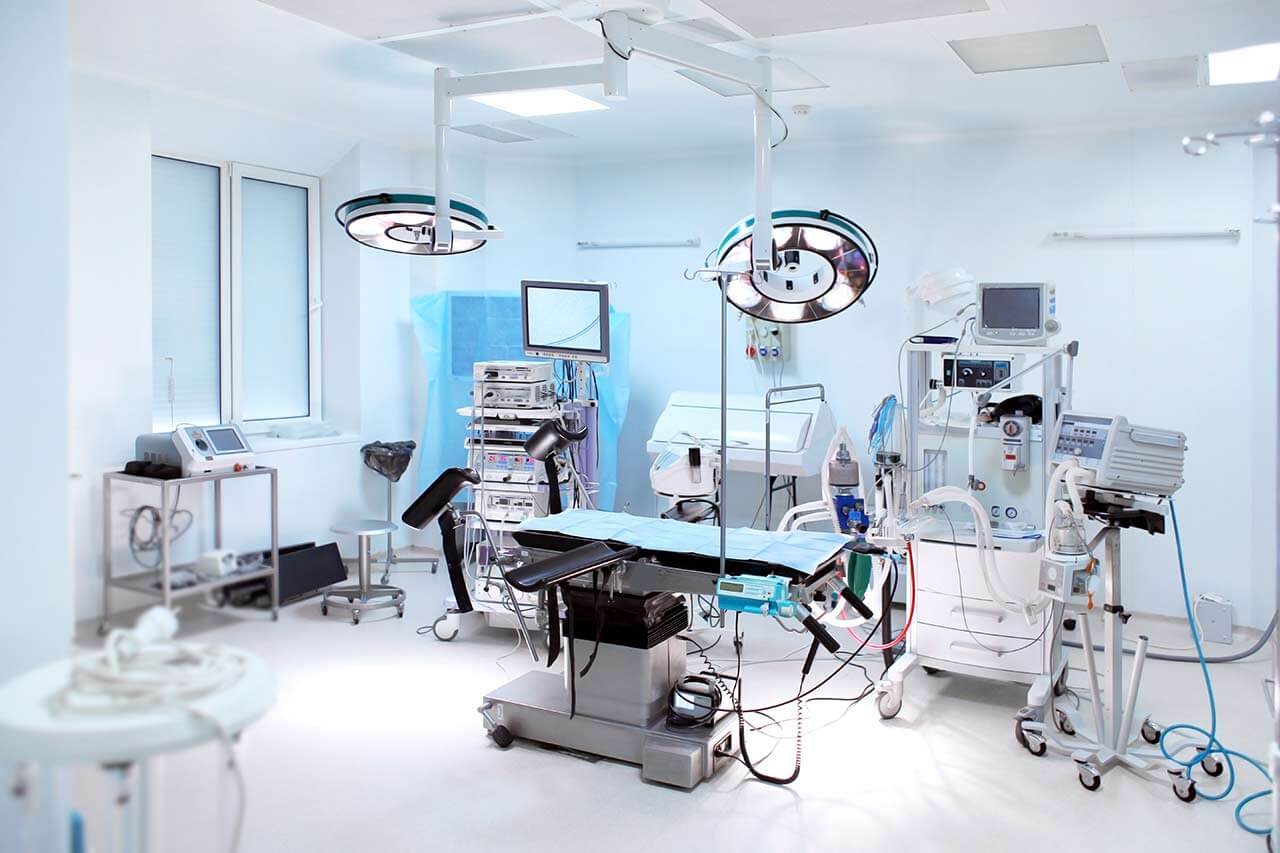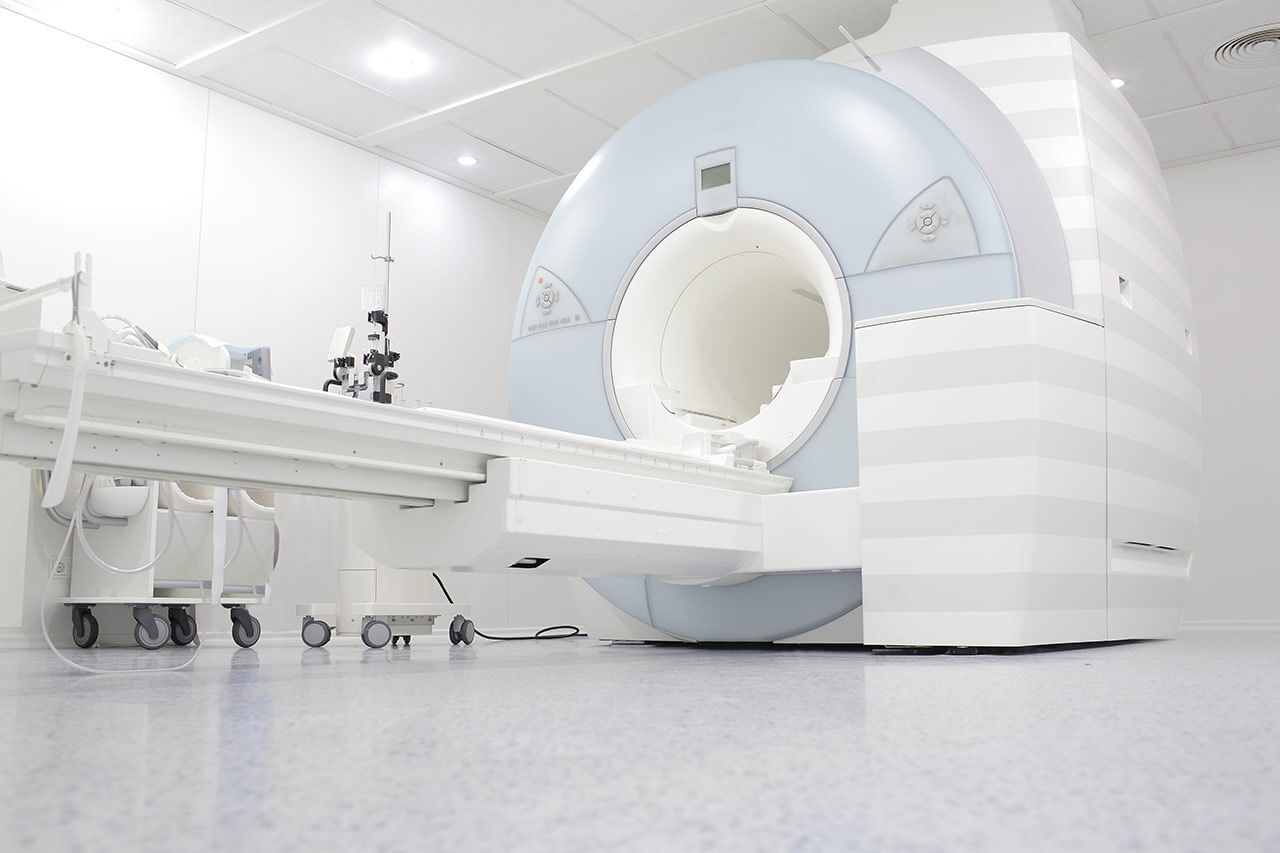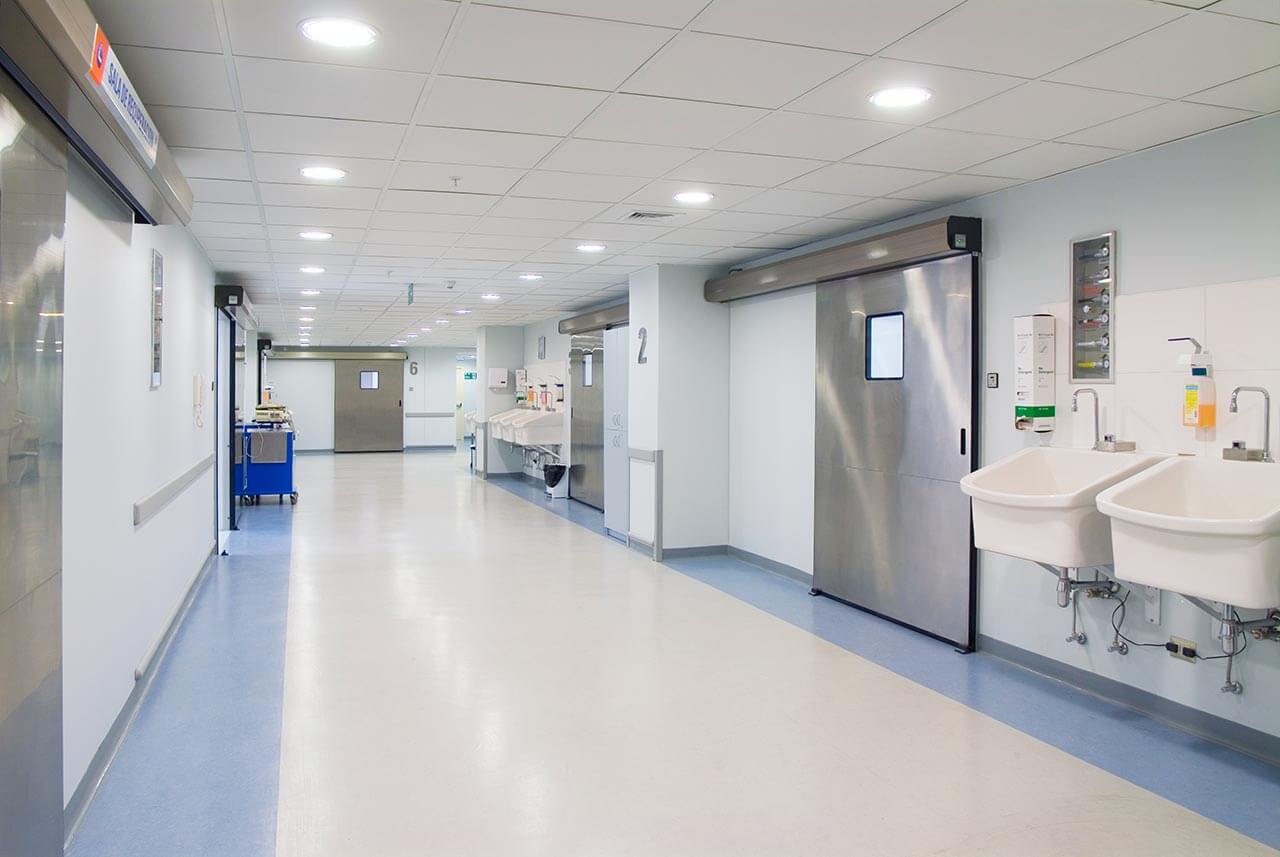
The program includes:
- Initial presentation in the clinic
- clinical history taking
- review of medical records
- physical examination
- laboratory tests:
- complete blood count
- general urine analysis
- biochemical analysis of blood
- inflammation indicators (CRP, ESR)
- indicators blood coagulation
- gynecological examination
- ultrasound examination: pelvis, abdomen
- preoperative care
- diagnostic and therapeutic hysteroscopy/ laparoscopy
- consultation of related specialists
- symptomatic specific treatment
- the cost of essential medicines and materials
- nursing services
- control examinations
- full hospital accommodation
- developing of further guidance
Required documents
- Medical records
- Ultrasound scan (if available)
Service
You may also book:
 BookingHealth Price from:
BookingHealth Price from:
About the department
The Department of Gynecology and Mammology at the University Hospital Halle (Saale) provides a wide range of medical services for the diagnosis and treatment of diseases of the female reproductive system and the mammary gland. The therapeutic options of the department include conservative and surgical methods. The main focus of the department's clinical practice is the medical care for women with oncological diseases such as uterine, cervical, ovarian, endometrial, vulvar, vaginal, and breast cancer. Since 2004, the department has had the status of the Breast Center (certified by the German Cancer Society (DKG) and the German Society for Senology (DGS)). The medical facility was also certified as a Center for Gynecologic Oncology by the German Cancer Society (DKG) in 2019. The department is also certified in accordance with DIN 9001:2015 standards, which indicates the excellent quality of medical care. If surgical treatment is indicated, minimally invasive surgical techniques are used whenever possible. Surgery for cancer is usually accompanied by chemotherapy, hormone therapy, immunotherapy, and radiation therapy. Women's health is in the safe hands of highly qualified experts with extensive clinical experience and thousands of lives saved. The Head Physician of the department is Prof. Dr. med. Markus Wallwiener.
The most important place in the clinical practice of the gynecologists of the department is given to the treatment of oncological diseases of the female genitalia. The department has extensive experience in the treatment of endometrial cancer, cervical cancer, ovarian cancer, vulvar cancer, vaginal cancer, and uterine sarcomas. Since 2009, the department has had the status of a specialized Center for Gynecologic Oncology, certified by the German Cancer Society (DKG). The first priority is the development of an individual treatment regimen taking into account the needs and wishes of the woman. For this purpose, the department holds weekly tumor boards with the participation of doctors from related specialties. Doctors review the patient's diagnostic data and discuss possible treatment options. Surgery is usually the first line of treatment. If clinically indicated, the department's gynecologists perform sparing minimally invasive operations; in the advanced stages of gynecologic cancer, specialists resort to a pelvic exenteration followed by reconstructive plastic surgery. In most cases, surgery alone is not enough to achieve a successful therapeutic outcome, so patients also receive drug treatment with chemotherapy, hormone therapy, antibody therapy, targeted therapy, and immunotherapy. In some cases, radiation therapy is required and it is performed by specialized doctors. The age of the patient is taken into account when developing the treatment regimen. When treating cancer in young women, doctors always make every effort to preserve reproductive function.
The department also diagnoses and treats a full range of benign gynecologic conditions. Patients with uterine fibroids, benign neoplasms arising from the smooth muscle cells of the cervix or uterine body, often come to the department for treatment. The gynecologists of the department closely cooperate with interventional radiologists, thanks to which the patients of the department can undergo modern and maximally sparing procedures for the removal of uterine fibroids, for example, uterine artery embolization. At the stage of treatment planning, doctors take into account the presence of reproductive plans, the patient's age, and the size and location of the uterine fibroid. Specialists strive to perform effective therapeutic manipulations while preserving the uterus, therefore hysterectomy (surgery to remove the uterus) is the last line of treatment. The department successfully performs hysteroresection of uterine fibroids, laparoscopic removal of uterine fibroids, and removal of uterine fibroids through the classic open surgical approach (in rare cases). The department also practices enucleation. This is a minimally traumatic and effective method of removing uterine fibroids.
The department has a Breast Center certified according to the standards of the German Cancer Society (DKG) and the German Society for Senology (DGS). The medical team of the Breast Center specializes in the diagnosis and treatment of benign and malignant breast diseases and mammary gland malformations. Early detection of breast diseases significantly increases the chances of their successful treatment, especially in the case of breast cancer, which is why modern diagnostic rooms with the possibility of performing sonography, digital mammography, and magnetic resonance imaging are available here. In many cases, breast cancer is caused by a genetic predisposition to this type of oncology, so the department offers special consultations aimed at identifying individual risk factors and initiating preventive measures. When a woman is diagnosed with breast cancer, the first-line treatment in most cases is resection of the malignant neoplasm; in the advanced stages of oncology, a mastectomy is performed, followed by reconstructive plastic surgery. To successfully combat breast cancer, comprehensive treatment is required, so surgery is usually supplemented by chemotherapy, hormone therapy, targeted therapy, and radiation therapy.
The department's range of medical services includes the following:
- Gynecology
- Diagnostics and treatment of malignant diseases of the female reproductive system
- Diagnostics and treatment of endometrial cancer
- Diagnostics and treatment of uterine cancer
- Diagnostics and treatment of cervical cancer
- Diagnostics and treatment of vulvar cancer
- Diagnostics and treatment of vaginal cancer
- Diagnostics and treatment of uterine sarcomas
- Diagnostics and treatment of benign diseases of the female reproductive system
- Diagnostics and treatment of uterine fibroids
- Diagnostics and treatment of endometriosis
- Diagnostics and treatment of cervical dysplasia
- Diagnostics and treatment of urogynecologic diseases: urinary incontinence and pelvic organ prolapse
- Diagnostics and treatment of malformations of external and internal female genitalia
- Diagnostics and treatment of chronic vaginal, uterine, and ovarian infections
- Diagnostics and treatment of adhesions in female genitalia
- Diagnostics and treatment of hormonal disorders associated with gynecologic diseases
- Diagnostics and treatment of malignant diseases of the female reproductive system
- Mammology
- Diagnostics and treatment of breast cancer
- Diagnostics and treatment of benign breast diseases: mastopathy, fibroadenomas, adenomas, lipomas, and others
- Diagnostics and treatment of breast malformations
- Other medical services
Curriculum vitae
Higher Education and Postgraduate Training
- 07.2000 - 06.2007 Medical studies, Eberhard Karl University of Tuebingen; internship, Massachusetts General Hospital, Boston, Massachusetts, USA.
- 07.2007 Medical license.
- 2013 Habilitation and Venia legendi in Gynecology and Obstetrics, Heidelberg University.
- Extraordinary Professorship, Faculty of Medicine, University of Heidelberg.
Professional Career
- Acting Head Physician, Department of Gynecology, University Hospital Heidelberg.
- Head of the certified Center for Gynecologic Oncology (ZGYNO).
- Head of the Training Center for Minimally Invasive Surgery and Endoscopy.
- Since October 1, 2023 Head Physician, Department of Gynecology and Mammology, University Hospital Halle (Saale).
Clinical Interests
- Diagnostics and treatment of cancers of the female reproductive system.
- Minimally invasive surgery with a focus on the treatment of gynecologic oncology (MIC III).
- Surgical treatment of breast diseases, certified Senior Breast Surgeon (certified by the German Cancer Society, DKG).
- Special obstetrics and perinatal medicine.
Research Interests
- Research projects on minimally invasive surgical techniques in gynecologic oncology.
- Research projects dedicated to the study of minimal residual disease (MRD) in breast cancer and gynecologic cancers.
- A study of the characteristics of medical care in the field of oncology and obstetrics in digital format.
Memberships in Professional Societies and Organizations
- Secretary of the Working Group on Gynecologic Oncology (AGO) of the German Cancer Society (DKG).
- Board Member of the Gynecological Endoscopy Working Group (AGE) of the German Society for Gynecology and Obstetrics (DGGG).
- Member of the Advisory Board of the European Society of Gynecological Endoscopy (ESGE).
- Coordinator of the "AG PROM project: patient-oriented medical care in digital format" of the German Society for Senology (DGS).
- Coordinator of the Commission on Digital Medicine of the German Society for Gynecology and Obstetrics (DGGG).
Photo of the doctor: (c) Universitätsklinikum Halle (Saale)
About hospital
According to the prestigious Focus magazine, the University Hospital Halle (Saale) is one of the best medical institutions in Germany!
The history of the hospital goes back more than 300 years, and during this time it has managed to gain an excellent reputation not only in Germany, but also throughout the world. The hospital positions itself as a specialized healthcare facility for the treatment of severe and rare diseases and injuries. The hospital provides medical care to patients of all ages in compliance with the latest scientific achievements. The hospital is distinguished by successful research activities, especially in the field of cardiovascular diseases and oncopathologies – the specialists in these areas have made significant contributions to the development of the very latest diagnostic methods and therapeutic approaches.
The University Hospital Halle (Saale) has 30 specialized departments representing almost all areas of modern medicine, as well as 17 narrowly focused institutes. About 35,000 patients receive qualified medical care of European standards in the hospital every year, and more than 212,000 patients are served on an outpatient basis. This number of patients is evidence of the high efficiency of medical services and the excellent image of the hospital in the international medical arena; patients from all over the world regularly seek medical attention here.
Some of the hospital's structural units deserve special attention. For example, the Central Emergency Department (the largest in Saxony-Anhalt), modern dental clinics, the Perinatal Center, and the Transplant Center, which has a history of more than 40 years. The Transplant Center performs more than 40 kidney transplants annually, most of them from living donors.
Thanks to the use of the latest medical technologies and the availability of state-of-the-art equipment, many previously high-risk surgeries and procedures can now be performed in the hospital using sparing techniques. In this context, hybrid cardiac surgery and robotic surgery using the innovative da Vinci Si® system in urology are worthy of mention.
An integral part of the successful clinical practice of the University Hospital Halle (Saale) is the availability of experienced and competent medical staff. The total number of employees at the hospital is more than 4,450. Many physicians are known far beyond the borders of Germany: they regularly conduct important research that enables the development of modern medicine. In addition, the hospital specializes in training medical students, so qualified doctors and professors are willing to pass on their experience to the younger generation.
The hospital has many quality certificates such as DIN EN ISO 9001:2015 certificate, German Cancer Society (DKG) certificate, JACIE certificate, EndoCert certificate, ClarCert certificate, German Spine Society (DWG) certificate, German Trauma Society (DGU) certificate, CERT iQ certificate, LGA InterCetert certificate, and others.
Photo: (с) depositphotos
Accommodation in hospital
Patients rooms
The patients of the University Hospital Halle (Saale) stay in comfortable single, double, and triple rooms with a modern design. All patient rooms have an ensuite bathroom with a toilet and a shower. The standard patient room includes a comfortable automatically adjustable bed, a bedside table, a wardrobe, a table and chairs for receiving visitors, a TV, a radio, and a telephone. The patient rooms have access to Wi-Fi. For safety reasons, the use of laptops and cell phones is prohibited in some areas, including the intensive care units. The hospital also offers enhanced-comfort patient rooms.
Meals and Menus
The hospital offers delicious and well-balanced meals three times a day: breakfast, lunch, and dinner. Patients and their companions can choose from three daily menus, which always include dietary dishes. If necessary, an individual menu can be prepared for the patient. Children are offered a special menu with healthy and tasty dishes, rich in nutrients necessary for a growing body.
Further details
Standard rooms include:
![]() Toilet
Toilet
![]() Shower
Shower
![]() Wi-Fi
Wi-Fi
![]() TV
TV
Religion
Religious services are available upon request.
Accompanying person
Your accompanying person may stay with you in your patient room or at the hotel of your choice during the inpatient program.
Hotel
Your accompanying person may stay with you in your patient room or at the hotel of your choice during the inpatient program.




